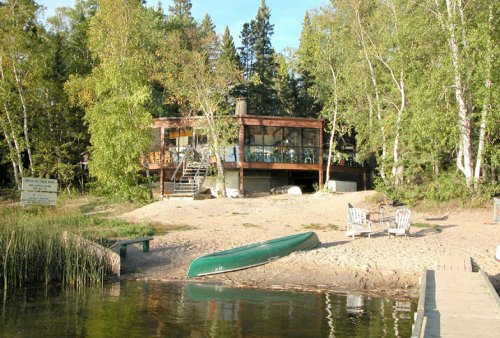
After eighty years of serving as a retreat for students of various disciplines, cabins from the University of Saskatchewan Kenderdine campus are now serving a new community.
Kenderdine campus was originally shut down in 2012 due to high operating costs that hindered the sustainability of its operations.
“There was a point in time I think where a decision had to be made about either being able to keep that campus open in its current form or needing to close it so that it could be put into a sustainable form,” says Debra Pozega Osburn, vice president of university relations.
After closing Kenderdine campus, the university’s goal was to assess the feasibility of the space for improvement. Wade Epp, U of S associate vice-president of services, says that Montreal Lake’s request for the cabins aligned with the university’s plan for a new Kenderdine campus. The cabins were set to be removed, and donating them to the band serves a better cause, according to Epp.
“We just had to work through those additional approvals to make sure that we were doing it in the safest and most respectful way possible,” Epp said.
The cabins are easy to transport, structurally sound but not winterized. Although they were donated, it is costing the band $100,000 to set them up on the reserve. Montreal Lake will also reportedly be altering the cabins for winter use along with taking down the rundown campus dining hall. Structures that hold historical significance, such as Gus Kenderdine’s cabin, will not be relocated.
Providing additional structures to Montreal Lake Cree Nation has created solutions for the band’s housing crisis during the COVID-19 pandemic. The cabins have been particularly important for first-time house owners and individuals that were commonly in and out of Montreal Lake, Epp says.
However, the decision to donate the cabins is not sitting well with everyone.
Keep Kenderdine, a group that formed with a goal of reviving Kenderdine campus after it was shut down, is upset that they were not consulted regarding the decision. Keep Kenderdine did not respond to the Sheaf’s request for an interview in the time for publication for this article.
The group was reportedly frustrated with the lack of dialogue and the ecological damage done around the area. Epp says that the group was not consulted due to the urgent nature of COVID-19.
As for the future of the Kenderdine campus, Osburn says that the U of S is focusing on community and sustainability in its reopening plan, to establish a creative space for individuals from diverse backgrounds. The next stage reportedly involves consultation with the broader community and students in particular, Keep Kenderdine included, to refine current plans.
“We want it to be aligned with our university plan and our commitment to be the university the world needs, not just today, not just tomorrow, but far into the future,” Osburn said.
—
Fiza Baloch | Staff Writer
Leave a Reply